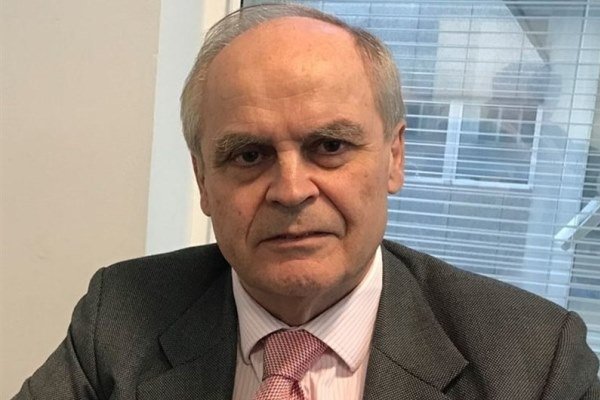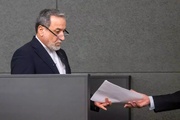Peter Jenkins, former UK Ambassador to the IAEA and UN, says that “In theory, Europe is perfectly capable of forming a treaty-based collective security organization from which the United States and Canada (and maybe the United Kingdom) are excluded.”
Former associate fellow of the Geneva Centre for Security Policy also adds that “It is doubtful whether that is what France and Germany are aiming to achieve in the near to medium future, and doubtful whether at this stage pan-European political will for that could be mobilized.”
He adds that “European army is much closer to being an aspiration than a reality.”
Following is the full text of the interview:
How do you evaluate speeches of Macron, French President, who said that Europe should no longer rely on US in terms of security“?
I think this is an important statement because it came only a few days after a call for a more independent Europe from Germany’s Foreign Minister, and some 15 months after a similar call from Chancellor Angela Merkel at a public meeting in Munich. Historically (by which I mean since the Second World War) France has championed a more independent European defense policy and Germany has reacted cautiously, reluctant to take any step that might affect the US commitment, under Article 5 of the 1949 North Atlantic Treaty, to come to Europe’s defense in case of need. Now, it seems, France and Germany are becoming like-minded on this crucial question.
Since the start of Trump’s presidency and his criticism of the European countries regarding NATO's share, Europe has begun its efforts to form a joint European army. According to Macron’s words, it seems that the formation of a joint European army is getting more serious. What is your opinion?
Back in the 1980s, if memory serves, Germany acquiesced in a French proposal to form a Franco-German brigade, based near Strasbourg. That initiative was rich in symbolism but of little practical significance. Now the talk is of a joint European army. I think this has more to do with Franco-German perceptions that the United States is becoming a more erratic ally, less trustworthy than for most of the last 70 years, more prone to making huge foreign policy misjudgments, than with Trump kicking up a fuss about the inadequacy of European contributions to NATO defense. I suspect, however, that at this stage a European army is much closer to being an aspiration than a reality.
Is Europe essentially capable of being independent of US in terms of security? If so, what will be the future of NATO?
In theory, yes, Europe is perfectly capable of forming a treaty-based collective security organization from which the United States and Canada (and maybe the United Kingdom) are excluded. But it is doubtful whether that is what France and Germany are aiming to achieve in the near to medium future, and doubtful whether at this stage pan-European political will for that could be mobilized. It is more likely that for the foreseeable future NATO will co-exist alongside the development of a more pronounced and more practically effective EU defense identity.
I referred just now to the United Kingdom. Historically the UK has been opposed to greater European integration in the defense sector, for fear of jeopardizing NATO. This is likely to remain the UK position for the foreseeable future, not least because of very close ties between UK and US military and intelligence services, although a Labor government led by Jeremy Corbyn would sympathize with what Macron, Maas and Merkel have been saying about Europe and implying about the United States. But, if the UK withdraws from the EU, France and Germany will find it easy to ignore British views, and probably will.
Some analysts have interpreted Macron's speeches as a new Western order. Will the West enter a new era of order and independence from the United States?
That is the direction in which France and Germany seem to want to travel. They are starting to imagine a world in which Europe can no longer rely on or cooperate with the United States to the extent that has been the norm since 1945, and must therefore acquire the capacity to be an independent pole in a multipolar international order. But this will not come about overnight. It will take many years.
Macron also said that Russia should be involved in European security issues. How do you assess this position?
That, too, is very significant. During the Cold War, especially when General De Gaulle was president of the French Republic, France tended to be less fearful of, and less hostile towards the Soviet Union than the United States and other NATO members. General De Gaulle used to talk of a Europe stretching from the Atlantic to the Urals. Since 2007 this historic tendency seems to have been in conflict with an un-Gaullist Atlanticism, and even with a certain neo-conservatism imported from the United States. Now Macron seems to be reviving the Gaullist perspective and contemplating a European security framework that would indeed stretch to the Urals. Defense cooperation with Russia and mutual respect for European and Russian interests would replace unperceptive threat assessments, demonization of Russia’s leaders, and insensitivity to Russian interests. But winning European support for this vision will not be easy. Poland and the Baltic states in particular prefer to see Russia as an ever-present threat to their territorial integrity or even survival. It will take a lot to convince them to look on Russia as a potential partner.
Interview by Javad Heirannia
MNA/TT


























Your Comment